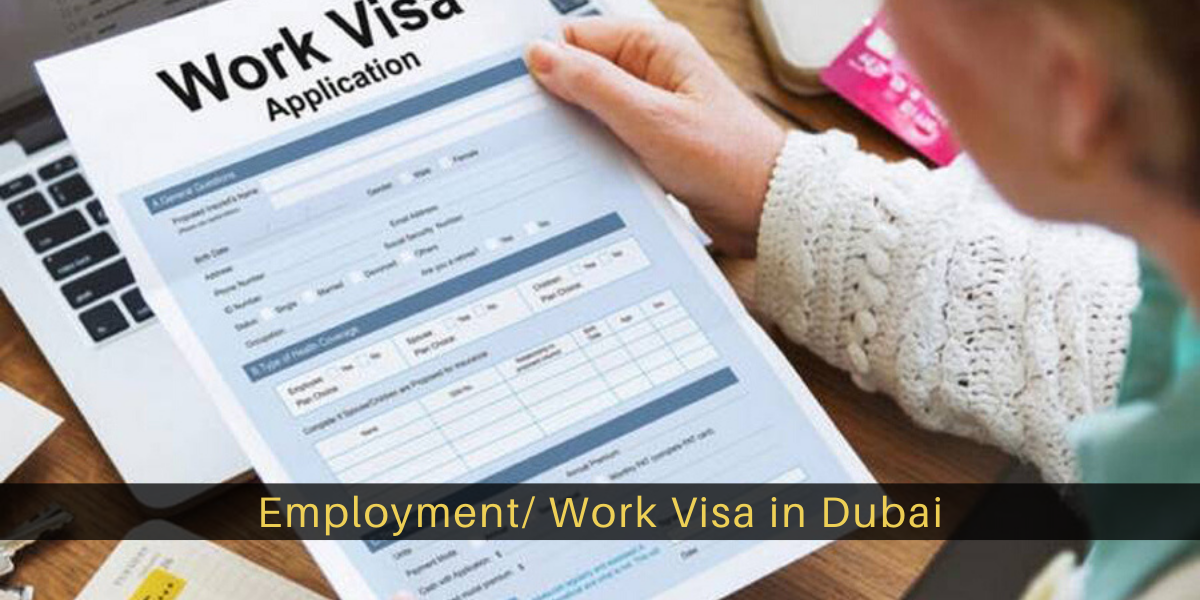Getting a Canada visa from Nigeria involves several steps, but one crucial requirement is the biometrics appointment. If you’re applying for a study permit, work visa, visitor visa, or permanent residency, you must submit biometrics (fingerprints and a digital photo) at an official Visa Application Centre (VAC).
But how does the biometrics process for a Canada visa in Nigeria work? How much does it cost? And what can you expect at your appointment? This guide will walk you through every step of the process, ensuring you avoid common mistakes and get your visa application approved without delays.
What Are Biometrics for a Canada Visa?
Biometrics are a key security requirement for most Canada visa applicants. The process involves capturing your fingerprints and taking a digital photograph at an official Visa Application Centre (VAC). These biometric details are stored in Canada’s immigration database and are used to:
- Verify your identity at border checkpoints.
- Prevent fraud and identity theft.
- Ensure faster entry for travelers who have previously provided biometrics.
📌 Why Does Canada Require Biometrics?
The Immigration, Refugees, and Citizenship Canada (IRCC) implemented biometric screening to strengthen border security and immigration control. With biometric verification, IRCC can:
- Confirm an applicant’s history if they have previously applied for a Canadian visa.
- Detect fraudulent identities by cross-checking fingerprints and photos.
- Speed up processing for low-risk travelers.
Who Needs to Submit Biometrics for a Canada Visa?
Not all visa applicants need to submit biometrics. Below is a list of who must provide biometrics:
#1. Temporary Resident Visas (Visitor Visas)
If you are applying for a tourist visa, business visitor visa, or a family visit visa, biometrics are mandatory.
#2. Study Permits
- Required for all international students except U.S. nationals.
- Students must provide biometrics only for their first visa application (not required for visa renewals).
#3. Work Permits
- Required for all foreign workers except U.S. nationals.
- If your work permit is approved for more than six months, you must submit biometrics.
#4. Permanent Residence (PR) Applicants
- Biometrics are required for all PR applications, including Express Entry, Family Sponsorship, and Provincial Nominee Programs (PNP).
#5. Refugees and Asylum Seekers
- All asylum seekers or those applying for refugee status must provide biometrics.
Who Is Exempt from Biometrics?
Not everyone is required to submit biometrics for a Canada visa. Here are some cases where biometrics are not needed:
- Applicants under 14 years old or over 79 years old (except asylum seekers).
- U.S. citizens applying for a study or work permit.
- Diplomats, government officials, and heads of state traveling for official duties.
- Permanent residents who are renewing their PR card.
📌 Pro Tip: If you have provided biometrics for a previous Canada visa within the last 10 years, you may not need to submit them again. You can check your biometric validity on the IRCC website.
How Are Biometrics Used?
Your biometric data is linked to your visa or travel document and is used for:
- Identity Verification – At border crossings, Canadian immigration officers scan your fingerprints to confirm your identity.
- Fraud Prevention – Biometric details prevent the use of fake passports or stolen identities.
- Simplifying Future Travel – Once you provide biometrics, future visa applications may be processed faster.
How Much Does Biometrics Cost for a Canada Visa in Nigeria?
Biometrics Fee for Canada Visa (2024):
- Individual applicants: CAD 85 (~₦80,000).
- Family applications (two or more people applying together): CAD 170 (~₦160,000).
- Groups of performing artists (3+ people): CAD 255 (~₦240,000).
📌 Important Notes:
- Biometrics fees are separate from the visa application fee.
- Payment must be made online through the IRCC portal before booking a biometrics appointment.
- Non-refundable: If your visa application is refused, you won’t be refunded the biometrics fee.
Step-by-Step Guide to Canada Visa Biometrics in Nigeria
If you’ve applied for a visitor visa, study permit, work permit, or permanent residency, you’ll need to submit biometrics at an authorized Visa Application Centre (VAC) in Nigeria.
Step #1: Receive Your Biometrics Instruction Letter (BIL)
After submitting your online visa application, you’ll receive a Biometrics Instruction Letter (BIL) from Immigration, Refugees, and Citizenship Canada (IRCC) via email.
📌 Important:
- The BIL is mandatory to book a biometrics appointment.
- You must provide biometrics within 30 days of receiving your BIL.
- Your visa application won’t be processed without completing biometrics.
Step #2: Schedule a Biometrics Appointment
Biometrics for a Canada visa in Nigeria can only be done at Visa Application Centres (VACs) managed by VFS Global.
📌 Official VAC Locations:
- VFS Global – Lagos (Plot 110 Admiral Ayinla Way, Lekki Phase 1, Lagos).
- VFS Global – Abuja (No. 38 Lobito Crescent, Wuse 2, Abuja).
How to Book a Biometrics Appointment Online:
- Visit the VFS Global website for Canada visa applications.
- Choose Nigeria as your location.
- Select your preferred VAC (Lagos or Abuja).
- Pick an available appointment date and time.
- Print your appointment confirmation and bring it to the VAC.
📌 Pro Tip: Appointments fill up quickly, so book your slot immediately after receiving your BIL.
Step #3: Attend Your Biometrics Appointment
On your appointment day, ensure you arrive at least 30 minutes early with the required documents.
📜 Documents Required for Biometrics in Nigeria:
- Biometrics Instruction Letter (BIL).
- Valid international passport (with at least six months validity).
- Visa application confirmation page (from your IRCC account).
- Printed appointment confirmation from VFS Global.
- Receipt of biometrics fee payment (if applicable).
What to Expect During Biometrics Collection:
You’ll register at the reception and submit your BIL.
A VAC officer will scan your fingerprints and take a digital photograph.
The entire process takes about 15–30 minutes.
📌 Important:
- No need to bring passport photos—your digital picture will be taken on-site.
- Avoid wearing colored contact lenses or heavy makeup, as this may interfere with photo recognition.
- Hand injuries? Wait for them to heal before booking biometrics, as all fingers must be scanned.
Step #4: Track Your Visa Application Status
Once biometrics are completed, your data is automatically sent to IRCC for processing.
✔ To check your application status:
- Log into the IRCC account where you submitted your visa application.
- Use the VFS Global tracking system to monitor progress (enter your tracking reference number).
📌 Processing Time for Biometrics Submission in Nigeria:
- Most biometric data is processed within 48–72 hours.
- After biometrics, visa processing times depend on the type of visa:
- Visitor visas: 3–6 weeks.
- Study permits: 6–12 weeks.
- Work permits: 6–12 weeks.
- Permanent residency (PR): 6 months or more.
Read Also: How to Apply for Canada Insurance for Immigrants 2024 – Live in Canada
Common Issues & How to Avoid Delays in Canada Visa Biometrics
Applying for a Canada visa from Nigeria requires completing biometrics on time. However, applicants often encounter delays and issues that can slow down their visa processing. Below are some common problems and solutions to ensure a smooth biometrics appointment.
#1. Missed Biometrics Deadline
Issue: You must complete your biometrics within 30 days of receiving the Biometrics Instruction Letter (BIL). If you fail to do so, your visa application may be rejected or delayed.
Solution:
- Book your appointment immediately after receiving your BIL to avoid last-minute scheduling issues.
- If you can’t get an appointment within 30 days, contact IRCC through the Webform to request an extension.
- If you miss the deadline for any reason, do not reapply for a new visa until IRCC provides instructions.
Pro Tip:
Check your spam/junk folder for your BIL email from IRCC, as delays often happen when applicants don’t see their instruction letter on time.
#2. No Available Appointments at VFS Global
Due to high demand, biometrics appointment slots fill up quickly at VFS Global in Lagos and Abuja. Some applicants struggle to find available dates.
Solution:
- Check the VFS Global website daily—cancellations happen frequently, and new slots may open.
- Book an appointment in Abuja if Lagos is fully booked (or vice versa).
- If all slots are unavailable, contact VFS Global customer support or check early morning hours, as new slots sometimes appear overnight.
Pro Tip:
If applying during peak visa seasons (January–April & August–October), book your appointment as soon as possible to avoid long wait times.
#3. Issues with Fingerprints (Biometrics Rejection)
Issue: Some applicants face fingerprint recognition issues, which may lead to rejection or the need for a repeat biometrics session.
Solution:
- Ensure your fingers are clean and dry before the appointment—avoid oily lotions, wet hands, or excessive sweating.
- If you have a hand injury (cuts, bruises, or peeling skin), reschedule your appointment after healing—damaged fingerprints may not scan properly.
- Elderly applicants or those with worn-out fingerprints should inform the VAC officer in advance to use alternative verification methods.
Pro Tip:
If your biometrics fail, you will need to return for another appointment, which can delay your visa processing. Ensure your hands are in good condition before your appointment.
#4. Incorrect Payment for Biometrics Fee
Issue: Some applicants mistakenly pay the wrong biometrics fee or fail to complete the payment in CAD, leading to rejection or delays.
Solution:
- Pay the biometrics fee in CAD through the IRCC portal before booking your appointment.
- Double-check the amount before processing the payment:
- Individual applicant: CAD 85 (~₦80,000).
- Family applications (2+ people): CAD 170 (~₦160,000).
- Group of performing artists (3+ people): CAD 255 (~₦240,000).
- If your payment fails, do not attempt multiple transactions immediately—wait 24 hours and try again.
Pro Tip:
If using a Nigerian debit/credit card, ensure it is enabled for international transactions before attempting payment. Some banks block international payments by default unless activated.
#5. Failure to Bring the Required Documents
Issue: Some applicants forget important documents, leading to denied entry at the VAC or being asked to reschedule their appointment.
Solution:
Ensure you bring the following documents:
- Biometrics Instruction Letter (BIL) (mandatory).
- Valid international passport (with at least six months validity).
- Visa application confirmation page from the IRCC portal.
- Printed appointment confirmation from VFS Global.
- Receipt of biometrics fee payment (if applicable).
Pro Tip:
Carry both digital and printed copies of your documents to avoid any last-minute issues.
#6. Technical Issues at the Visa Application Centre (VAC)
Issue: Some applicants experience system downtimes, long queues, or VAC equipment failures, causing unexpected delays.
Solution:
- Arrive early (at least 30 minutes before your appointment) to account for any unforeseen delays.
- Avoid peak hours—early morning appointments (8 AM–10 AM) usually have shorter wait times.
- If you experience technical issues at the VAC, report the problem immediately to the staff and request guidance on the next steps.
Pro Tip:
If you’re traveling from another city to Lagos or Abuja for biometrics, consider booking an afternoon flight back in case of unexpected delays at the VAC.
Key Takeaways
- Biometrics is a mandatory requirement for Canada visa applicants in Nigeria.
- The biometrics fee is CAD 85 (~₦80,000) per person and must be paid before booking.
- You can only complete biometrics at VFS Global Visa Application Centres in Lagos and Abuja.
- Appointments must be booked online, and slots fill up fast, so schedule immediately after receiving your Biometrics Instruction Letter (BIL).
- Visa processing starts only after biometrics are submitted, so ensure you complete this step as early as possible.
Final Thoughts
Biometrics for a Canada visa in Nigeria is one of the most important steps in the visa application process. Missing your appointment or failing to provide the correct documents can lead to delays or even visa rejection.
By following this guide, you can navigate the biometrics process smoothly and increase your chances of getting your Canada visa approved.
Are you currently applying for a Canada visa? Do you have any questions about biometrics? Drop your questions in the comments below! 👇






